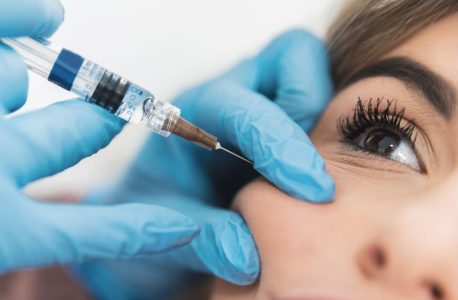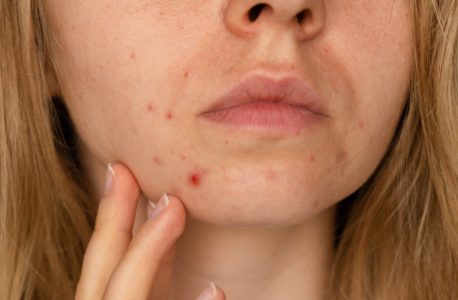Find out what female androgenetic alopecia is, what causes it and how to treat it.
Female androgenetic alopecia refers to a marked loss of hair in women. The loss of hair density has not only a physical impact, but also a psychological one, especially if we take into account the importance that hair generally plays in a woman’s image.
Fortunately, there are now several treatments for hair loss. Treatment for female androgenetic alopecia can allow women to regain their hair and thus their self-esteem. Here’s how.
What is it?
Female androgenetic alopecia is the pathology that most often causes female hair loss. It is caused by genetic susceptibility and a hormonal component.
This condition results in follicular miniaturization and a gradual decrease in hair density, especially in the upper and frontal areas of the scalp.
What are the main causes?
Female androgenetic alopecia has a genetic origin, i.e. it is inherited from one or both parents. However, this condition can also be aggravated by situations that affect the metabolic cycle of the hair follicles, such as hormonal changes, illness, stress and nutritional deficiencies.
Who is it most common in?
Taking into account the underlying causes, female androgenetic alopecia is more common in women from middle age onwards, especially those who have already gone through the menopause. This is because it is a phase of major hormonal changes in women. However, there are cases in which androgenetic alopecia can manifest itself earlier.
Is female androgenetic alopecia permanently curable?
No, there is no cure for androgenetic alopecia. However, there are treatments that can minimize its effects. The earlier treatment is started, the greater the chances of recovering lost hair density.
What are the most suitable treatments for female androgenetic alopecia?
At Living Clinic, we offer three types of treatment for female androgenetic alopecia. The most suitable treatment for each case should be selected after the patient has been assessed by the dermatologist.
Hair mesotherapy
This is a minimally invasive treatment that is generally recommended for those who are beginning to experience hair thinning. Hair mesotherapy consists of infiltrating a compound that can contain medicines, nutrients, vitamins, amino acids and nucleic acids into the scalp. The composition of mesotherapy is personalized according to each patient. The aim is to prevent the progression of baldness and stimulate an increase in hair density.
This treatment can be indicated not only for androgenetic alopecia (baldness) but also in other cases of hair loss.
Hair PRP treatment
The acronym that gives this treatment its name synthesizes the expression “Platelet Rich Plasma”. It is a minimally invasive procedure which, through a simple, small centrifuged blood sample from the patient, manages to separate the PRP from the rest of the blood components.
This PRP is then reinjected into the patient’s scalp, releasing substances into the dermis that will encourage hair growth and strengthening.
As it is an autologous product, the risk of allergic reactions or infections is reduced, making this a very safe procedure.
As this treatment is indicated for various hair and scalp conditions, due to the excellent results it provides, it is a highly sought-after and recommended procedure for combating female androgenetic alopecia.
Among the benefits associated with Hair PRP treatment are:
- Stimulation of hair growth: stimulation of hair follicles and promotion of new hair growth:
- Prevention and treatment of hair loss;
- Strengthening existing hair: increasing the thickness and health of remaining hair strands;
- Improving scalp health: revitalizing the scalp, improving blood circulation and supplying hair follicles with essential nutrients;
- Increased blood supply;
- Acceleration of collagen production;
- Development of cell proliferation;
- Extension of the anagen phase of the hair cycle;
- Delaying the effects of Alopecia;
- Recovery of tissues and follicles after hair transplantation;
- Accelerated healing of the donor and recipient areas.
The number of sessions required for this treatment to be effective may vary from patient to patient, but a minimum of 4 sessions, lasting 30 minutes, every four weeks is recommended.
The results of this procedure are usually visible 3 to 4 months after starting the treatment. After this procedure, there are some precautions to be taken in the following 24 hours:
- Avoid washing your hair;
- Avoid direct exposure to the sun;
- Avoid using chemical or thermal products
- Avoid intense physical activity;
- Do not use anti-inflammatory drugs.
Hair transplantation
In cases of advanced baldness, a hair transplant may be indicated, where follicles are removed from places where hair is abundant and then placed in areas where there is a lack of hair.
This is done using the FUE (Follicular Unit Extraction) technique, which is minimally invasive and leaves no noticeable scars. This treatment is indicated for situations of alopecia, where transplantation can restore hair density where there has been follicular loss.
In addition to the treatments mentioned above, it is very important that the patient is monitored by a doctor and complies with the specific medical guidelines for their case.
If you have already been diagnosed with female androgenetic alopecia or if you have hair loss and are looking for an effective solution, book an appointment at the Living Clinic in Porto with our dermatologist.
Responsible for Hair Treatments

Dr. Paola Halfeld is a specialist in Dermatology from the Brazilian Medical Association and holds a Master in Public Health from the University of Porto. She completed her degree in Medicine at Estácio de Sá University in Rio de Janeiro. Subsequently, she completed her integrated master’s degree in medicine at the University of Algarve, registering with the Portuguese Medical Society in 2020.
She is a member of the Brazilian Society of Dermatology and a member of the European Academy of Dermatology and Venereology.
During her training, she completed internships at leading institutions such as the Oswaldo Cruz Foundation (Fiocruz) and the National Cancer Institute (INCA). She was a fellow in aesthetic dermatology and trichology (an area of dermatology that studies and treats hair disorders).
Dr. Halfeld is a regular participant in medical conferences and events, contributing to scientific communications as main author and co-author, in addition to numerous courses and training courses in many areas of dermatology. She recently presented her master’s study at the World Congress of Dermatology in Singapore.
Dr. Halfeld has a special interest in the treatment of diseases affecting the scalp and hair and in cosmetic dermatology. It is her practice to perform a complete physical examination for skin cancer screening in all her patients.
Schedule an Appointment
- Are you looking for more information about a specific treatment?
- Would you like to learn more about Living Clinic?
- Would you like to receive the opinion of our specialists?
- Are you interested in scheduling a consultation?






